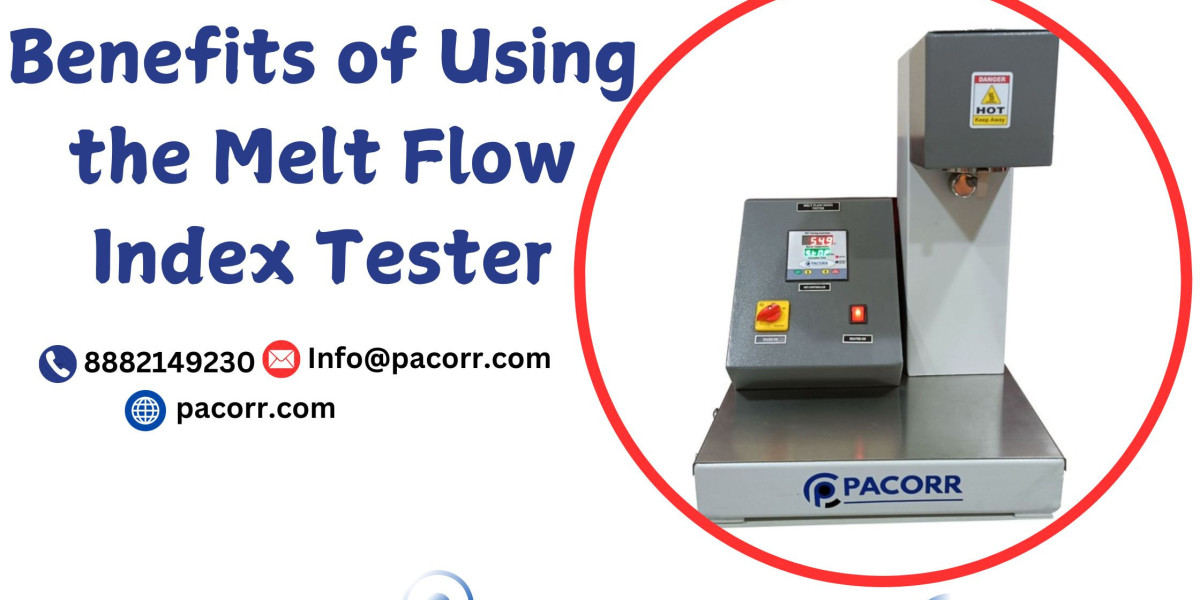What is a Melt Flow Index Tester?
A Melt Flow Index Tester is a specialized instrument used to measure the melt flow rate (MFR) of thermoplastic polymers. The melt flow rate determines how easily a polymer can flow under specified temperature and pressure conditions, offering insights into the material's viscosity and molecular weight.
MFI testing is a standard procedure for evaluating plastic quality in industries such as automotive, packaging, electronics, and consumer goods. With a reliable MFI tester, manufacturers can maintain consistency, predict performance, and ensure compliance with industry standards.
Why is Melt Flow Index Testing Important?
- Quality Control: The MFI test ensures the raw material's properties meet the desired specifications, which is crucial for high-performance applications.
- Material Selection: By understanding a polymer’s flow properties, manufacturers can select materials best suited for specific processes like injection molding or extrusion.
- Process Optimization: An accurate MFI value helps in adjusting process parameters for efficient manufacturing.
- Compliance with Standards: Many industries require adherence to strict quality norms, and MFI testing ensures compliance with ASTM D1238 or ISO 1133 standards.
How Does a Melt Flow Index Tester Work?
An MFI tester operates by heating a sample of polymer to a specific temperature and applying a defined weight to it. The melted material flows through a die, and the amount extruded over a given time period is measured.
Key steps include:
- Sample Preparation: The polymer sample is cut into small pieces and placed in the barrel of the tester.
- Heating: The sample is heated to a precise temperature, ensuring it melts uniformly.
- Weight Application: A standard weight applies pressure on the melted polymer.
- Flow Measurement: The polymer flow through the die is collected and measured to calculate the melt flow rate.
Features to Look for in a Melt Flow Index Tester
When choosing an Melt Flow Index Testing for your laboratory or production facility, consider the following features:
- Temperature Accuracy: A reliable tester should maintain precise and consistent temperatures.
- Ease of Use: Intuitive controls and user-friendly interfaces improve productivity.
- Multiple Weights: Capability to use various weights for different testing conditions.
- Compliance: Ensure the tester adheres to ASTM and ISO standards.
- Robust Design: Durable construction guarantees longevity, even in rigorous industrial environments.
Pacorr's Melt Flow Index Testers combine these features to offer unparalleled performance and reliability.
Applications of Melt Flow Index Testers
- Polymer Manufacturing: Ensures the raw polymer meets flow and viscosity requirements.
- Quality Assurance in Production: Identifies inconsistencies in plastic batches.
- Research and Development: Helps develop new materials with specific flow properties.
- Recycling Industry: Determines the quality of recycled plastics by analyzing their flow characteristics.
Why Choose Pacorr for Melt Flow Index Testers?
At Pacorr, we understand that accurate Melt Flow Index Tester Price equipment is vital for modern manufacturing. Our Melt Flow Index Testers are engineered with precision, offering features like:
- Advanced temperature control systems.
- Durable components for long-lasting performance.
- Easy-to-maintain designs.
- Comprehensive support for calibration and operation.
When you choose Pacorr, you're not just buying equipment; you're investing in quality, reliability, and excellence.
Tips for Using Your MFI Tester
- Regular Calibration: Keep the tester calibrated to ensure accurate readings.
- Proper Cleaning: After each test, clean the die and barrel to avoid residue buildup.
- Sample Uniformity: Use uniform-sized samples for consistent results.
- Record Keeping: Maintain detailed records of test results for traceability and compliance.
Conclusion
A Melt Flow Teste is indispensable for manufacturers aiming to produce high-quality plastic products. Whether you're in material selection, quality assurance, or research, having a reliable tester ensures you can meet industry demands and standards.
For the best-in-class Melt Flow Index Testers, visit Pacorr.com. Explore our range of high-quality testing equipment designed to enhance your production processes and deliver unparalleled results. Pacorr stands as a trusted partner in your journey toward precision and quality.






